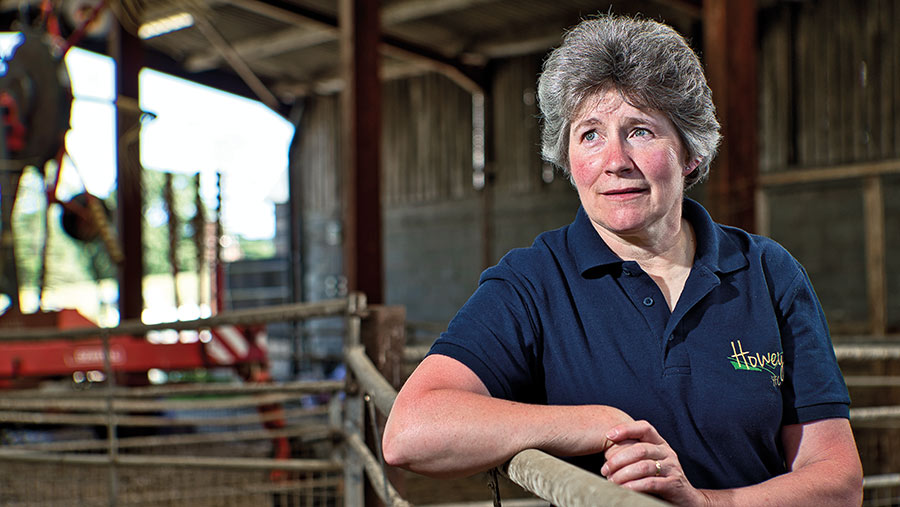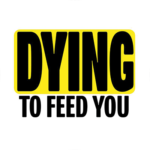Dying to Feed You: Corrine’s eye socket was fractured by a cow
 © Richard Stanton
© Richard Stanton Welsh farmer’s wife and nurse Corrine Mathias suffered a fractured eye socket after being attacked by a cow.
Watch her tell her story in the video and read the report below.
See also: Dying to Feed You: Grace suffered multiple broken bones
It started as a normal Saturday. There was a local football match on. My husband, Robert, and my son, Geraint, went to watch it.
The farm work was up to date, so I decided to walk the dogs in the afternoon.
We farm upland beef and sheep at Bryn Farm, Howey, near Llandrindod Wells.
We’ve about 550 ewes and 45 head of cattle on about 120ha in the Brecon Beacons, mid-Wales.
I set off and went up by the shed. I could see there was a cow just about to calve. She calved and I waited a second to make sure they were both ok.
The calf wasn’t moving, so without thinking I went in to see if I could help.
As I did, the calf took a breath – everything was good. But there was another cow in the shed with a week-old calf.
She came over and butted me hard in the face with her head. She sent me flying. I tried to get up but she kept hitting me back down again.
Concrete wall
The cow sent me backwards across the shed until I was against the wall.
I couldn’t go any further backwards, so when she was hitting my head, the back of my head was hitting the concrete block wall behind me.
I was probably knocked out for a few seconds. When I came to, she had obviously trodden on me somewhere because my leg was injured too.
Then something took her attention and she turned round and I saw my chance to escape.
I got out through the feed barrier at the front of the shed. I sat there thinking about what had just happened – trying to decide what was hurting most.
My face was stinging. My leg was stinging. My nose was bleeding.
Robert and Geraint hadn’t arrived back home – but I still had my phone in my pocket.
So I phoned them and said: “How far away are you? You’d better come home because the cow has had me.”
Battered and bruised
We went to the local hospital – to the minor injuries department at Llandrindod hospital. It’s where I work – I’m a nurse as well as a farmer’s wife.
The nurse who met me didn’t recognise at to first because my face was so swollen – then she realised.
They referred me to Hereford hospital. They X-rayed my face and my leg. I had fractured my eye socket.
Over the next few days, a lot of bruising came out. I was bruised from head to foot – my whole body was battered.
I had to lie flat on my back, and that was it. I couldn’t move. I didn’t do any lambing that year at all.
I couldn’t even visit the lambing shed because I couldn’t walk that far. I was off work for six weeks and then went back on a phased return.
You think it’s not going to happen to you. But it can, and when you least expect it.
Sometimes farmers think they are immune to getting hurt; they don’t think the farm can be a dangerous place.
Hopefully, Geraint will think twice after seeing what happened to me.
We have visitors to stay in the farm holiday cottage and I try and point out places where they can walk safely, too.
If I had not rushed in that day without thinking – if I had just stopped and given it a couple of minutes – I could have probably prevented the incident.
When cows are calving, it pays to stop and think.
My message is to do just that. Assess the situation a little bit longer. Take your time – and think ahead.
Minimise the risks when handling livestock
“Corrine was very lucky. Her head injuries, although serious, could have been much worse, even fatal,” says Oliver Dale, managing director of Safety Revolution.
It’s easy to become complacent with animals and think you know their temperament To minimise risks, Mr Dale advises:
- Never assume that a placid animal won’t turn
- Cow and calf is often more dangerous than a bull
- Don’t go into a pen without notifying someone
- If you think there is a risk or if the animal is displaying any sign of aggression, don’t enter the pen
- Avoid working in a pen alone
- Ensure that you have a refuge that you can get to quickly if you are injured or distressed
- Cull an animal that shows any sign of aggression
Dying to Feed You
 About the campaign
About the campaign
Farming has the highest number of workplace fatalities of all occupations. Farmers Weekly is pledging to use its voice, influence and reach to reduce the accident rate in agriculture.
Find out how you can be a part of helping us change agriculture’s safety record at fwi.co.uk/dying-to-feed-you
Partner message

The team at Safety Revolution are delighted to be working with Farmers Weekly to reduce deaths in agriculture and to show how we can work together to create safer farms.
Building strong and positive safety cultures delivers happy and safe teams, fewer incidents and improved productivity. We look forward to exploring individual case studies and shining a light
